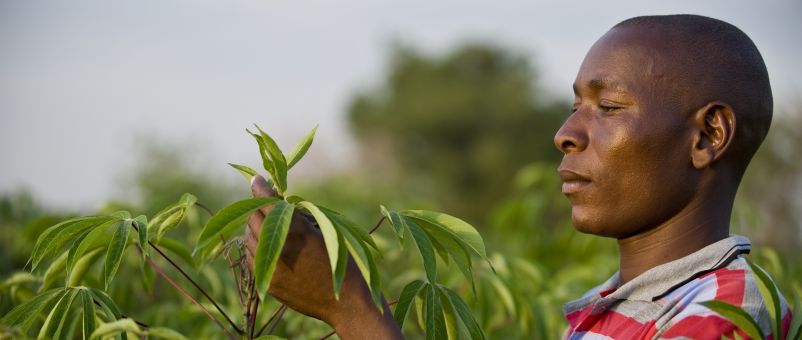- About
- Topics
- Story
- In-Depth
- Picks
- Opinion
- News
- Donate
- Signup for our newsletterOur Editors' Best Picks.Send
Read, Debate: Engage.
| December 25, 2019 | |
|---|---|
| topic: | Sustainable Development |
| tags: | #Gambia, #China, #fishery |
| located: | China, Gambia |
| by: | Bob Koigi |
But three years later, that excitement has turned into despair, frustration and anger as the company, Golden Lead, faces a flurry of accusations from overfishing, pollution, death of tourism and edging out artisanal fishermen and fishmongers from business.
But it also points to the underhand tactics Chinese firms are employing in establishing businesses in Africa with little regard for local communities needs as it advances debt diplomacy across the continent.
Golden Lead produces fishmeal which is obtained after drying and grinding fish or its waste. Its final product is a powder which is added to other foods for feeding pigs, poultry or farmed fish. The company received a license to operate in Gambia from former despotic ruler Yahya Jammeh with its factory sitting between the ocean and a freshwater lagoon that is home to a host of rare birds and Gambia’s first community wildlife reserve.
Locals welcomed the project that first recruited 80 workers from Gunjur but environmentalists and communities would later raise concerns over wanton pollution of the ocean when carcasses of whales, fish, dolphins, rays, turtles and rays started being spotted washed up on the beach. The situation worsened with water from the lagoon turning into a shocking shade of red and the birds started to die. Ahmed Manjang a biomedical scientist raised the concerns when he tested the water which returned high levels of phosphates. “This is pure negligence from the Gambia fisheries and environment ministry. [Pillaging of the Gambia’s most prized commodity continues unabated], with the presence of unregulated fishmeal factories along the Kombo coast”, he communicated in a tweet.
Environmentalists raised the alarm over a waste pipe that deposited the factory’s effluence into the ocean. And although Golden Lead denied the claims, intervention by The Gambian National Environment Agency which ordered the company to remove the pipe and treat its wastewater was seen as a reprieve. Months of inaction however jolted activists to dig up the pipe and remove it. After being taken to court the company opted for an out of court settlement and paid $25,000.
But the government, keen not to discourage foreign investors, allowed Golden Lead to reinstall the waste pipe. Two similar factories along the South Western coastline that are run by the Chinese have also been closed and reopened on environmental pollution grounds.
Golden Lead has also come under criticism for depleting fish stocks of bonga, a fish that the local communities rely on as a source of cheap protein. This, even as it pushes local communities out of business due to competition for supplies. Up to 200,000 Gambians rely on fishing and related activities to earn a livelihood with fish accounting for more than half of the animal protein they take. As a result of dwindling supplies of bonga fish to cater for the fishmeal and fish oil, FMFO, businesses, the number of Gambians who are food insecure has grown from 5 to 8 percent.
And as the scarcity persists, prices of bonga have risen to unprecedented and unmanageable highs even as artisanal fishermen complain that their boats cannot compete with the Chinese mechanised fish trawlers that are taking all the fish stocks leaving them out of business. Fish smokers and mongers, the majority of whom are women, complain that the fishermen have more than tripled prices since they also sell to the fishmeal factory. A basket that would traditionally go for $2 now costs $10.
This concern was raised by Changing Markets Foundation, an organisation that highlights global environmental and social issues, in its October report dubbed Fishing for Catastrophe. The report decried the growing risks of FMFO fishing to communities’ livelihood, nutrition and food security. “The production of fishmeal and fish oil (FMFO) for use in global aquaculture supply chains is precipitating the collapse of fish stocks, compromising food security, and destroying the social and economic fabric of communities living adjacent to historic fishing grounds at a time when the oceans are being pushed to the brink by the impacts of climate change, pollution and overexploitation”, read a section of the report.
The report also lifted the lid on how Golden Lead was selling part of its fishmeal to Vietnam before being relabeled on the black market to be exported to China allowing the company to bypass the strict Chinese food-safety regulations considering China doesn’t have a fish export agreement with Gambia.
But despite the mountain concern over the dangers the Chinese fishmeal factories continue to pose to coastal communities, the government continues displaying its soft spot for the investors in what is interpreted as a way of cementing its relationship with China, even as it seeks to boost earnings at a time when the economy continues to record dismal growth. Gambia is part of the Belt and Road Initiative being championed by China to foster trade and boost infrastructure. This includes a $33 million grant part of which will go into developing the country’s agriculture and fisheries sectors. China also in 2017 cancelled Gambia’s national debt of $14 million.
By copying the embed code below, you agree to adhere to our republishing guidelines.

